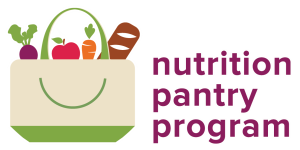

By Laken Ross, Nutrition Programs Coordinator
Ever tried studying on an empty stomach? It’s like trying to drive a car with an empty tank – you might move forward for a bit, but soon enough, you’ll sputter to a stop. For many college students, hunger isn’t just a distraction; it’s a constant companion, lurking in lecture halls and dorm rooms alike. Imagine the challenge of understanding complex equations or analyzing literature when your stomach growls louder than the professor’s voice. In a 2021 study of eight higher education institutions, survey results revealed that 46.6% of students have experienced the inability to focus in class due to limited food intake.
College hunger isn’t just about missing meals. It’s about missing opportunities, hindering academic success, and exacerbating the already daunting challenges of higher education. In fact, hungry students are 43% less likely to graduate (Wolfson et al., 2022)
Despite these alarming statistics, less than 7% of students have never used a pantry, indicating a significant gap in reaching those who may benefit from these essential resources. It’s clear that closing this gap to ensure students’ basic food security are met is essential for fostering a conducive learning environment.
University pantries like the University of Central Arkansas’ (UCA) Bear Essentials Pantry and Southern Arkansas University’s (SAU) Mulerider Market recognize this importance as they address college hunger in their communities. Both pantries attended the 2023 College Hunger Summit, where they learned about the Alliance’s pilot of the Nutrition Pantry Program (NPP) and its significance in combating food insecurity on campuses. They each signed up to become an NPP partner to enhance their effect in their communities.
Understanding NPP: Leah’s Pantry’s Nutrition Pantry Program (NPP) is a healthy pantry program that addresses the policy, systems, and environment of a food distribution with a client-centered and trauma-informed approach to prioritize healthy foods. Client centered means that the program prioritizes the needs and preferences of the people accessing the pantry. It involves listening to their feedback, understanding their challenges and goals, and tailoring services to meet their specific needs.Trauma informed means that the program is sensitive to the experiences of individuals who may have experienced trauma from food insecurity. It involves creating a safe and supportive environment that acknowledges the potential impact of trauma on food access and consumption.
How NPP Works: As NPP implementers, the Alliance is dedicated to assisting pantries in creating trauma-informed work plans aimed at increasing nutritious, culturally sensitive food options. This involves providing resources, conducting webinars on trauma-informed care and other NPP topics, and facilitating connections with community organizations. By fostering collaboration and knowledge-sharing among pantries, NPP aims to create a supportive network that empowers pantries to work to create innovative and sustainable solutions combating food insecurity for their communities.
Key Focus Areas of NPP: NPP identifies seven key focus areas crucial for effective pantry operations:
- Client Feedback
- Community Connections
- Nutrition Education
- Environment
- Inventory and Waste Reduction
- Cultural and Dietary Accommodations
- Policies and Procedures
Exemplary Practices at UCA and SAU: UCA and SAU already demonstrate outstanding achievement in addressing these focus areas within their respective pantries:
- Community Connections: UCA’s pantry fosters inclusive community connections, forging partnerships with local grocery stores to bolster their inventory and reach more students in need. They also create innovative partnerships within the campus. For example, they have a program, Food for Fines, where students can pay off parking tickets by donating cans of food to the pantry.
- Inventory & Waste Reduction: SAU’s pantry goes the extra mile by utilizing garden produce to create nutritious, individual meals that can be frozen and distributed, such as green bean casserole. This innovative approach ensures students have access to healthy appealing options.
A Look to the Future: As these pantries serve as points of inspiration, their efforts underscore the importance of sustained commitment and collective action in the fight against college hunger. Looking ahead, NPP will continue to be instrumental in guiding their endeavors. Though they do outstanding work already, these pantries are committed to furthering their efforts in closing the college hunger gap. UCA and SAU have developed work plans in one of the key focus areas that they don’t already do a lot of work in to further enhance their pantry operations.
In a later blog post, we will delve deeper into the progress made by UCA and SAU as they continue to combat college hunger. Stay tuned for updates on the innovative initiatives and positive outcomes achieved through their dedication to achieving their NPP goals. Together, we can create a brighter future where no student has to face the challenges of hunger while pursuing their education.
If your college pantry is interested in NPP, please consider attending our upcoming 2024 College Hunger Summit.
